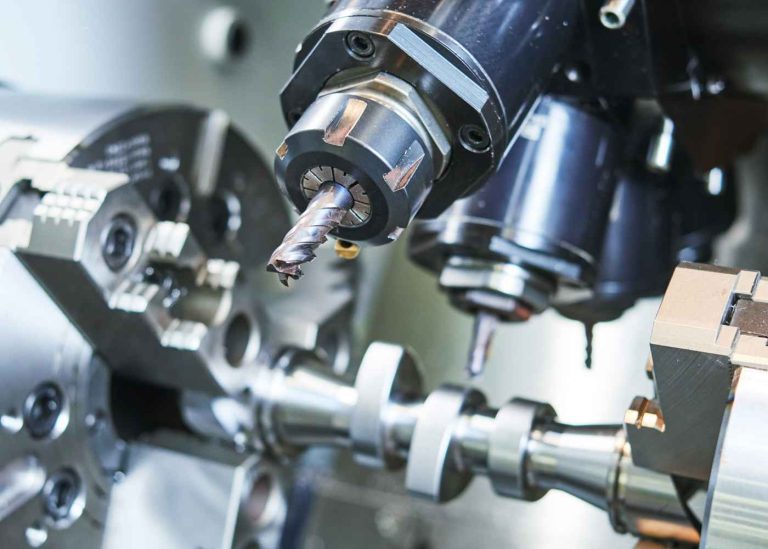Manufacturing success in today’s competitive global marketplace demands precision, efficiency, and reliability that can only be achieved through advanced machine tooling technologies and expert implementation. High-precision tooling represents the foundation upon which modern manufacturing excellence is built, enabling companies to produce consistent, high-quality products while maintaining cost-effectiveness and operational efficiency.
The difference between standard and precision tooling often determines whether manufacturers can meet increasingly demanding customer specifications while remaining profitable in competitive markets.
Understanding how precision tooling impacts manufacturing operations helps business leaders recognize its strategic importance for long-term success and market positioning. The investment in high-precision machine tooling transforms manufacturing capabilities from basic production to sophisticated, competitive operations that consistently deliver superior results while building customer trust and market reputation.
Ensuring Consistent Quality Standards
Machine tooling companies like Munoz Technical Consulting ensure consistent quality standards by maintaining extremely tight tolerances that eliminate variations between manufactured parts, creating products that meet or exceed customer specifications with remarkable consistency across large production runs.
Advanced tooling technologies reduce human error and environmental factors that typically cause quality variations in less sophisticated manufacturing processes. This consistency enables manufacturers to confidently guarantee product specifications while reducing quality control costs and customer returns.
The ability to maintain consistent quality standards throughout extended production cycles builds customer confidence and loyalty while enabling premium pricing for superior products. Manufacturers with precision tooling capabilities often become preferred suppliers for critical applications where quality cannot be compromised.
Reducing Production Waste
Precision tooling significantly reduces production waste through accurate cutting, forming, and finishing processes that minimize material loss while ensuring first-pass quality that eliminates the need for rework or scrap disposal that affects both costs and environmental impact.
Advanced tool designs and cutting technologies optimize material usage while maintaining product integrity, enabling manufacturers to achieve higher yields from raw materials. This efficiency directly impacts profitability while supporting sustainability initiatives that increasingly matter to customers and regulatory bodies.
Reduced waste generation also decreases disposal costs, environmental compliance burdens, and material handling requirements that consume valuable floor space and labor resources better directed toward productive manufacturing activities.
Accelerating Production Cycles
Precision machine tooling accelerates production cycles through faster cutting speeds, reduced setup times, and extended tool life that enables continuous operation with minimal interruptions for tool changes, maintenance, or quality adjustments.
Advanced tool geometries and coatings enable higher machining speeds while maintaining surface finish quality, allowing manufacturers to increase throughput without sacrificing product quality. This speed advantage becomes crucial when competing for time-sensitive orders or managing peak demand periods.
Faster production cycles enable manufacturers to respond quickly to customer demands, reduce lead times, and take advantage of market opportunities that require rapid product delivery. This responsiveness often determines success in competitive bidding situations and emergency supply scenarios.
Supporting Complex Geometries
High-precision tooling supports the manufacture of complex geometries that would be impossible or prohibitively expensive using conventional machining methods, enabling innovative product designs that create competitive differentiation and market advantages.
Advanced multi-axis machining capabilities and specialized tooling enable the production of intricate parts with complex curves, internal features, and tight tolerance requirements that open new market opportunities and applications previously considered unfeasible.
The ability to manufacture complex geometries often enables product consolidation where multiple simple parts can be combined into single, more sophisticated components that reduce assembly costs while improving product performance and reliability.
Enabling Automation Integration
Perhaps most importantly for future competitiveness, precision machine tooling enables seamless automation integration that reduces labor dependency while improving consistency, safety, and operational efficiency in increasingly automated manufacturing environments.
Automated systems require the precision and repeatability that only high-quality tooling can provide, ensuring that robotic operations produce consistent results without human intervention. This automation capability becomes essential for competing with low-labor-cost manufacturing regions.
Integration with digital manufacturing systems and Industry 4.0 technologies requires precision tooling that can communicate performance data and maintain consistent operation parameters. This connectivity enables predictive maintenance, quality monitoring, and process optimization that drive continuous improvement initiatives.
Final Thoughts
High-precision machine tooling drives manufacturing excellence and competitive advantage through consistent quality assurance, waste reduction, accelerated production cycles, complex geometry support, and automation enablement that collectively transform manufacturing operations into sophisticated, competitive enterprises capable of meeting modern market demands while building sustainable business success.







